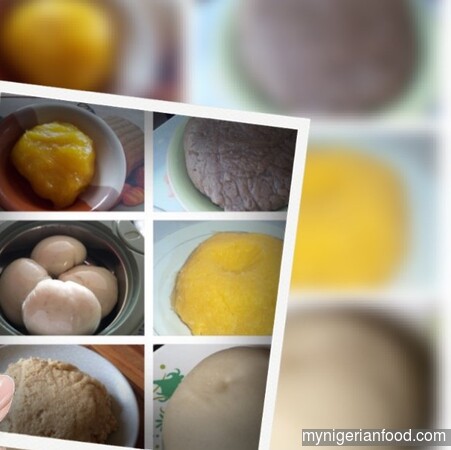Not all Swallows are Fufu. Nigerian cuisine is gradually gaining the recognition it deserves, as evidenced by the recent surge in popularity of the “fufu and egusi” challenge on the internet. However, with increased visibility comes the responsibility of accurate information dissemination. Therefore, I am here to clarify that not all carbohydrate accompaniments for soups and stews are fufu. Let me elaborate.
Swallows, also known as morsels or by various compound names depending on regional variations, are carbohydrate accompaniments commonly served with soups and stews across many African countries. Think of them as the equivalent of mashed potatoes served with gravy and a lamb shank. We prefer our carbohydrates to be molded into a cohesive ball on our plates, making it easier to scoop up our soups and stews.
There is a debate surrounding the origin of the name “swallow.” Some people simply swallow the morsel and soup without chewing, while others, like myself, prefer to chew the morsel before swallowing. This difference in eating habits has led to the term “swallow.”
Various types of swallows or morsels are available across the continent, typically made from root vegetables, with modern variations incorporating different ingredients for health reasons. The primary sources of swallows include cassava, yam, plantain, and maize. Let me share a few types of swallows I am familiar with, and please feel free to add any I may have missed in the comments section.
Types of Swallows:
1. Fufu: Made from cassava, fufu may vary in appearance, smell, and taste depending on the region or country. Some varieties may be whiter, smellier, and have a stronger tart taste due to the fermentation process. Others may be blander and take on the flavor of the soup or stew. The texture may also differ, with some varieties being less stretchy than others.
2. Pounded Yam: This is made from African yams, boiled and pounded into a smooth dough-like consistency.

3. Garri: Another cassava-based swallow, garri is grated, fermented, and dry fried before being mixed with hot water to form a cohesive dough. It comes in different variations, including yellow (fried with palm oil), white, and tart (known as Ijebu Garri in Nigeria).
4. Amala (Elubo): Made from dried yams, cassava, or plantain, which are then blended into a powder and mixed with water over fire until a stretchy light dough is formed.
5. Semo: Typically made from semolina flour, water is added to the flour in a pot over heat to form a cohesive dough.
African Swallows:
1. Kenkey: A native swallow to Ghana, kenkey is made from fermented and milled maize cooked into a dough. It has a tart taste due to fermentation and is often consumed with grilled fish and pepper salsa.
2. Sadza/Ugali: Similar to kenkey, sadza/ugali is native to Eastern Africa and is made from maize, but the fermentation process differs.
Newer Swallows:
In recent times, swallows have evolved to incorporate high-fiber, low-glycemic options for health reasons. Swallows made from oat flour, wheat flour, coconut flour mixed with psyllium husk, dehydrated cabbage blended into powder and mixed with psyllium husk, among others, have become popular.
Now that you are informed, I hope we will make an effort to inquire about the specific swallow we are consuming as we delve into Nigerian, West African, or African cuisine, treating it with the respect it deserves.

Now that everyone is adequately educated, I do hope we make the effort to ask what swallow exactly we are consuming as we get our introduction to Nigerian, West African or even generally African Cooking so we treat it with the appropriate respect.

